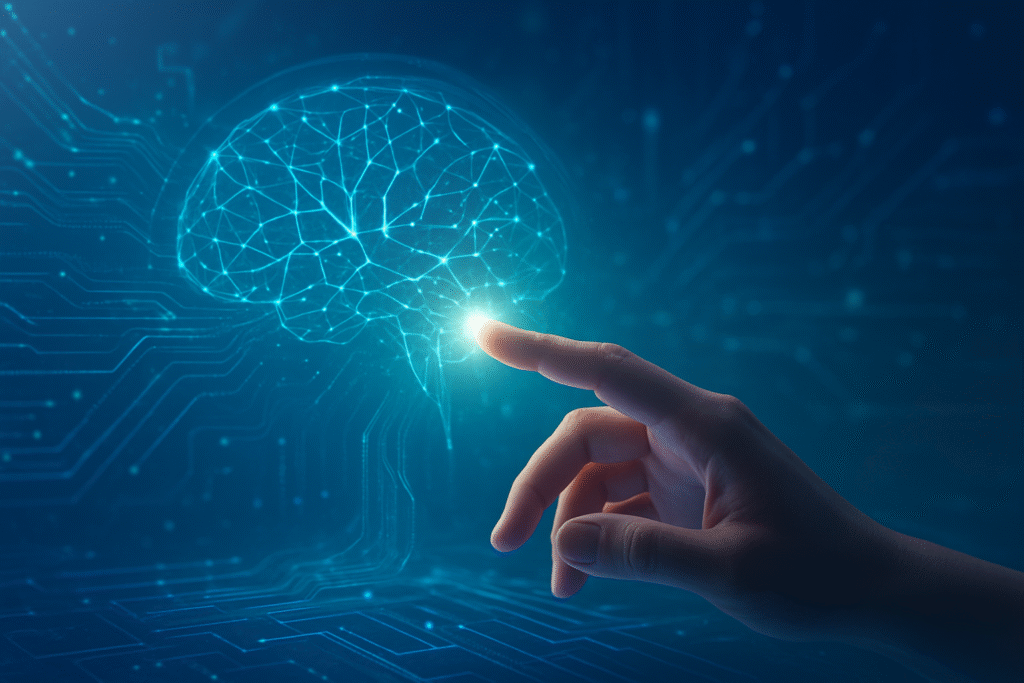
In an era increasingly dominated by discussions of artificial intelligence's rapid advancements, recent developments from late 2024 to late 2025 offer a crucial counter-narrative: the enduring and often superior performance of human intelligence in critical domains. While AI systems (like those developed by Alphabet (NASDAQ: GOOGL) and Microsoft (NASDAQ: MSFT)) have achieved unprecedented feats in data processing, pattern recognition, and even certain creative tasks, a growing body of evidence and research underscores their inherent limitations when it comes to emotional intelligence, ethical reasoning, deep contextual understanding, and truly original thought. These instances are not merely isolated anomalies but rather a stark reminder of the unique cognitive strengths that define human intellect, reinforcing its indispensable role in navigating complex, unpredictable, and value-laden scenarios.
The immediate significance of these findings is profound, shifting the conversation from AI replacing human capabilities to AI augmenting them. Experts are increasingly emphasizing the necessity of cultivating uniquely human skills such as critical thinking, ethical judgment, and emotional intelligence. This perspective advocates for a strategic integration of AI, where technology handles data-intensive, repetitive tasks, freeing human intellect to focus on complex problem-solving, innovation, and moral guidance. It highlights that the most promising path forward lies not in a competition between humans and machines, but in a synergistic collaboration that leverages the distinct strengths of both.
The Unseen Edge: Where Human Intervention Remains Crucial
Recent research and real-world scenarios have illuminated several key areas where human intelligence consistently outperforms even the most advanced technological solutions. One of the most prominent is emotional intelligence and ethical decision-making. AI systems, despite their ability to process vast amounts of data related to human behavior, fundamentally lack the capacity for genuine empathy, moral judgment, and the nuanced understanding of social dynamics. For example, studies in early 2024 indicated that while AI might generate responses to ethical dilemmas that are rated as "moral," humans could still discern the artificial nature of these responses and critically evaluate their underlying ethical framework. The human ability to draw upon values, culture, and personal experience to navigate complex moral landscapes remains beyond AI's current capabilities, which are confined to programmed rules and training data. This makes human oversight in roles requiring empathy, leadership, and ethical governance absolutely critical.
Furthermore, nuanced problem-solving and contextual understanding present a significant hurdle for current AI. Humans exhibit a superior adaptability to unfamiliar circumstances and possess a greater ability to grasp the subtleties and intricacies of real-world contexts, especially in multidisciplinary tasks. A notable finding from Johns Hopkins University in April 2025 revealed that humans are far better than contemporary AI models at interpreting and describing social interactions in dynamic scenes. This skill is vital for applications like self-driving cars and assistive robots that need to understand human intentions and social dynamics to operate safely and effectively. AI often struggles with integrating contradictions and handling ambiguity, relying instead on predefined patterns, whereas humans flexibly process incomplete or conflicting information.
Even in the realm of creativity and originality, where generative AI has made impressive strides (with companies like OpenAI (private) and Stability AI (private) pushing boundaries), humans maintain a critical edge, especially at the highest levels. While a March 2024 study showed GPT-4 providing more original and elaborate answers than average human participants in divergent thinking tests, subsequent research in June 2025 clarified that while AI can match or even surpass the average human in idea fluency, the top-performing human individuals still generate ideas that are more unique and semantically distinct. Human creativity is deeply interwoven with emotion, culture, and lived experience, enabling the generation of truly novel concepts that go beyond mere remixing of existing patterns—a limitation still observed in AI-generated content. Finally, critical thinking and abstract reasoning remain uniquely human strengths. This involves exercising judgment, understanding limitations, and engaging in deep analytical thought, which AI, despite its advanced data analysis, cannot fully replicate. Experts warn that over-reliance on AI can lead to "cognitive offloading," potentially diminishing human engagement in complex analytical thinking and eroding these vital skills.
Navigating the AI Landscape: Implications for Companies
The identified limitations of AI and the enduring importance of human insight carry significant implications for AI companies, tech giants, and startups alike. Companies that recognize and strategically address these gaps stand to benefit immensely. Instead of solely pursuing fully autonomous AI solutions, firms focusing on human-AI collaboration platforms and augmented intelligence tools are likely to gain a competitive edge. This includes companies developing interfaces that seamlessly integrate human judgment into AI workflows, or tools that empower human decision-makers with AI-driven insights without ceding critical oversight.
Competitive implications are particularly salient for major AI labs and tech companies such as Google (NASDAQ: GOOGL), Meta Platforms (NASDAQ: META), and Amazon (NASDAQ: AMZN). Those that acknowledge AI's current shortcomings and invest in research to bridge the gap between AI's analytical power and human cognitive strengths—such as common sense reasoning or ethical frameworks—will distinguish themselves. This might involve developing AI models that are more interpretable, controllable, and align better with human values. Startups focusing on niche applications where human expertise is paramount, like AI-assisted therapy, ethical AI auditing, or highly creative design agencies, could see significant growth.
Potential disruption to existing products or services could arise if companies fail to integrate human oversight effectively. Overly automated systems in critical sectors like healthcare, finance, or legal services, which neglect the need for human ethical review or nuanced interpretation, risk significant failures and public distrust. Conversely, companies that prioritize building "human-in-the-loop" systems will build more robust and trustworthy solutions, strengthening their market positioning and strategic advantages. The market will increasingly favor AI solutions that enhance human capabilities rather than attempting to replace them entirely, especially in high-stakes environments.
The Broader Canvas: Significance in the AI Landscape
These instances of human outperformance fit into a broader AI landscape that is increasingly acknowledging the complexity of true intelligence. While the early 2020s were characterized by a fervent belief in AI's inevitable march towards superintelligence across all domains, recent findings inject a dose of realism. They underscore that while AI excels in specific, narrow tasks, the holistic, nuanced, and value-driven aspects of cognition remain firmly in the human domain. This perspective contributes to a more balanced understanding of AI's role, shifting from a narrative of human vs. machine to one of intelligent symbiosis.
The impacts are wide-ranging. Socially, a greater appreciation for human cognitive strengths can help mitigate concerns about job displacement, instead fostering a focus on upskilling workforces in uniquely human competencies. Economically, industries can strategize for greater efficiency by offloading repetitive tasks to AI while retaining human talent for innovation, strategic planning, and customer relations. However, potential concerns also emerge. An over-reliance on AI for tasks that require critical thinking could lead to a "use-it-or-lose-it" scenario for human cognitive abilities, a phenomenon experts refer to as "cognitive offloading." This necessitates careful design of human-AI interfaces and educational initiatives that promote continuous development of human critical thinking.
Comparisons to previous AI milestones reveal a maturation of the field. Early AI breakthroughs, like Deep Blue defeating Garry Kasparov in chess or AlphaGo mastering Go, showcased AI's prowess in well-defined, rule-based systems. The current understanding, however, highlights that real-world problems are often ill-defined, ambiguous, and require common sense, ethical judgment, and emotional intelligence—areas where human intellect remains unparalleled. This marks a shift from celebrating AI's ability to solve specific problems to a deeper inquiry into what constitutes general intelligence and how humans and AI can best collaborate to achieve it.
The Horizon of Collaboration: Future Developments
Looking ahead, the future of AI development is poised for a significant shift towards deeper human-AI collaboration rather than pure automation. Near-term developments are expected to focus on creating more intuitive and adaptive AI interfaces that facilitate seamless integration of human feedback and judgment. This includes advancements in explainable AI (XAI), allowing humans to understand AI's reasoning, and more robust "human-in-the-loop" systems where critical decisions always require human approval. We can anticipate AI tools that act as sophisticated co-pilots, assisting humans in complex tasks like medical diagnostics, legal research, and creative design, providing data-driven insights without usurping the final, nuanced decision.
Long-term, the focus will likely extend to developing AI that can better understand and simulate aspects of human common sense and ethical frameworks, though true replication of human consciousness or emotional depth remains a distant, perhaps unattainable, goal. Potential applications on the horizon include AI systems that can help humans navigate highly ambiguous social situations, assist in complex ethical deliberations by presenting diverse viewpoints, or even enhance human creativity by offering truly novel conceptual starting points, rather than just variations on existing themes.
However, significant challenges need to be addressed. Research into "alignment"—ensuring AI systems act in accordance with human values and intentions—will intensify. Overcoming the "brittleness" of AI, where systems fail spectacularly outside their training data, will also be crucial. Experts predict a future where the most successful individuals and organizations will be those that master the art of human-AI teaming, recognizing that the combined intelligence of a skilled human and a powerful AI will consistently outperform either working in isolation. The emphasis will be on designing AI to amplify human strengths, rather than compensate for human weaknesses.
A New Era of Human-AI Synergy: Concluding Thoughts
The recent instances where human intelligence has demonstrably outperformed technological solutions mark a pivotal moment in the ongoing narrative of artificial intelligence. They serve as a powerful reminder that while AI excels in specific computational tasks, the unique human capacities for emotional intelligence, ethical reasoning, deep contextual understanding, critical thinking, and genuine originality remain indispensable. This is not a setback for AI, but rather a crucial recalibration of our expectations and a clearer definition of its most valuable applications.
The key takeaway is that the future of intelligence lies not in AI replacing humanity, but in a sophisticated synergy where both contribute their distinct strengths. This development's significance in AI history lies in its shift from an unbridled pursuit of autonomous AI to a more mature understanding of augmented intelligence. It underscores the necessity of designing AI systems that are not just intelligent, but also ethical, transparent, and aligned with human values.
In the coming weeks and months, watch for increased investment in human-centric AI design, a greater emphasis on ethical AI frameworks, and the emergence of more sophisticated human-AI collaboration tools. The conversation will continue to evolve, moving beyond the simplistic "AI vs. Human" dichotomy to embrace a future where human ingenuity, empowered by advanced AI, tackles the world's most complex challenges. The enduring power of human insight is not just a present reality, but the foundational element for a truly intelligent future.
This content is intended for informational purposes only and represents analysis of current AI developments.
TokenRing AI delivers enterprise-grade solutions for multi-agent AI workflow orchestration, AI-powered development tools, and seamless remote collaboration platforms.
For more information, visit https://www.tokenring.ai/.





